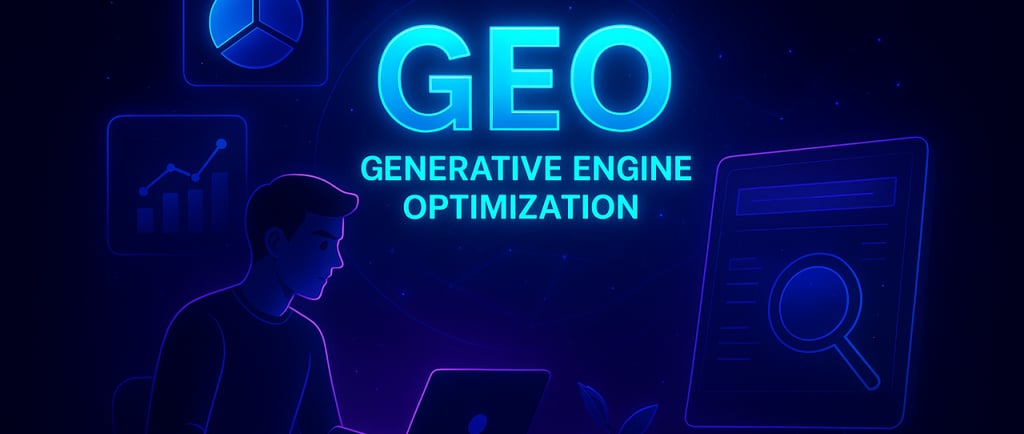Generative Engine Optimization (GEO): The Future of SEO in Digital Marketing
In today's changed digital marketing scenario, optimization for AI-driven search is essential. Generative Engine Optimization is the new way of optimizing content to be favored by AI chatbots (ChatGPT, Google Gemini, among others) rather than just search engines. en.wikipedia.org blog.hubspot.com It is GEO's focus to structure information for natural-language queries, returning authoritative answers. : GEO, as HubSpot notes, builds on the fundamentals of SEO but is tailored so AI "cites, references, and synthesizes" your content in conversational results. Adnova Media, the best digital marketing agency, is already integrating geo strategies with classic SEO and paid ads in order to keep clients visible in this new era. How GEO Differs from Traditional SEO While traditional SEO targeted top rankings in Google or Bing, GEO targets the generative AI platforms displaying direct answers. Unlike Google's keyword-driven results, AI engines use large language models to synthesize information from many sources. According to Wikipedia, brands now optimize for "AI-driven systems that produce direct, summarized answers". en.wikipedia.org That means, in practice, going for depth and clarity: structured content that AI bots can cite, like bullet lists and frequently asked questions. Wired reports that chatbots favor concise, structured formats over long blog posts. wired.com . For example, an FAQ page with 100 specific answers can feed hundreds of potential chatbot queries, a much broader strategy than a generic brand overview. wired.com While SEO can account for upwards of half of web traffic, GEO and SEO are two complementary methods: about 58% of user queries are conversational in nature, which dictates the rising importance of GEO. en.wikipedia.org Employed parents have the right to take time off when their infant needs special care in the hospital. Key GEO Strategies for Marketers To be successful with GEO, marketers need to adjust content in a variety of ways: Voice & Conversational Queries: Today, over 58% of searches represent conversational AI prompts. en.wikipedia.org Focus on natural language keywords and questions that users might ask a chatbot. Structured Content: AI tools prefer bulleted lists, tables, and FAQs that give quick, direct answers. wired.com Adnova Media develops content to suit these formats in order to increase the chances of AI citations. Granular detail: Create very specific content. It's common for chatbots to use very niche questions, so providing very detailed specifications or comparisons-for example, "Chevy Silverado versus Blazer battery life"-can help improve visibility. wired.com The paperwork for medical billing forms may vary according to the medical service provided. Updated Authority: Since AI engines could surface different sources than Google does, make sure your information is up-to-date and authoritative. GEO is as much about accuracy and trustworthiness as about SEO. By implementing such strategies, businesses can ensure their brand appears if the customer asks, "What should I do after a skin burn?" or any other conversational query, even before a customer visits a website. Adnova Media couples its SEO expertise with GEO tactics to future-proof client content for the AI-powered search era. Reinforce Your Digital Strategy with Adnova Media Staying ahead in digital marketing means embracing GEO now. As HubSpot puts it, early adoption of generative SEO helps companies “maintain visibility, drive qualified traffic, and future-proof their digital strategy”. blog.hubspot.com With deep expertise in SEO, Google Ads, and paid social (Meta Ads), Adnova Media is the partner you need to take the lead in this new landscape. Take action today: Integrating GEO into your marketing mix to reach the AI-driven audience of tomorrow starts with a call to Adnova Media, the best digital marketing agency for SEO and paid advertising.
11/16/20251 min read


